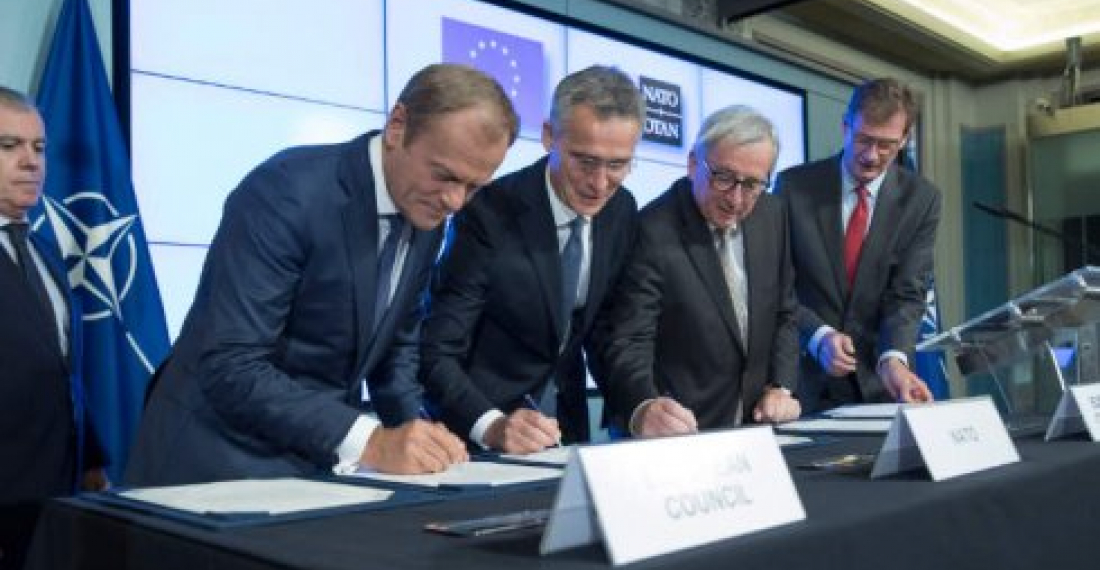NATO and the European Union have identified military mobility as a key area for cooperation between the organisations. The Joint Declaration signed in July 2018 by NATO Secretary General Jens Stoltenberg and European Commission and Council Presidents Jean-Claude Juncker and Donald Tusk reaffirmed the interconnected security interests of NATO Allies and EU Member States and the importance of cooperation to underpin the defence initiatives of both organisations.
"Military mobility is essential for NATO's deterrence and defence posture, and is now a key focus of cooperation with the European Union. Moving Allied forces into and across Europe at speed, and sustaining them, is a significant logistic challenge involving many stakeholders at national and multinational levels, which will be put to the test in Exercise Trident Juncture 18 this October and November", writes Peter Williams in the latest issue of NATO Review.
"The Ukrainian Crisis of 2014 heightened Allied concerns about a resurgent and assertive Russia. It underlined the need to be able to rapidly and confidently reinforce a threatened Ally on the periphery of NATO territory, to deter a potential threat and, should deterrence fail, to defend an Ally from an attack. Added to this, conflict in Syria and the upsurge in terrorism, cyberattacks and other forms of hybrid warfare against Allies have underscored the potential for conflict across the full domestic and international spectrum and the need for increased coordination to ensure readiness and resilience. It has also become clear that the Alliance needs to be able to do it all: from collective defence; to crisis management; to projecting stability beyond our borders; to contributing to combating terrorism. So, times have changed and the risks and burdens have increased", he writes.
You can read the full article on NATO Review, here
source: NATO Review, Brussels
photo: NATO and the European Union have identified military mobility as a key area for cooperation in the Joint Declaration signed in July 2018 by Secretary General Jens Stoltenberg and European Commission and Council Presidents Jean-Claude Juncker and Donald Tusk. (picture courtesy of NATO press service).







